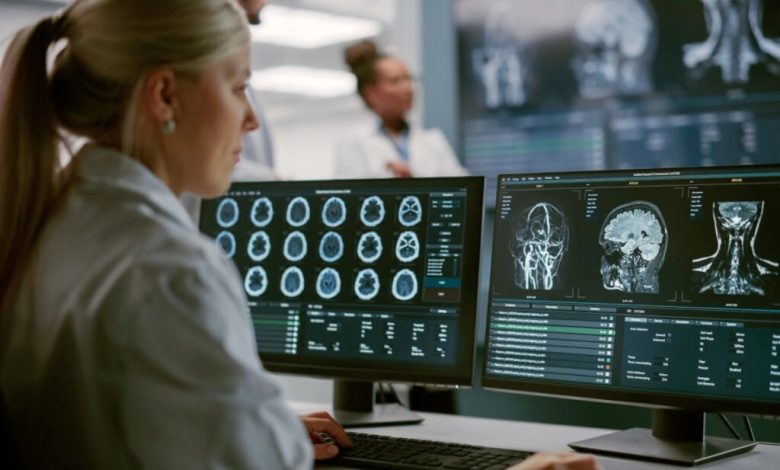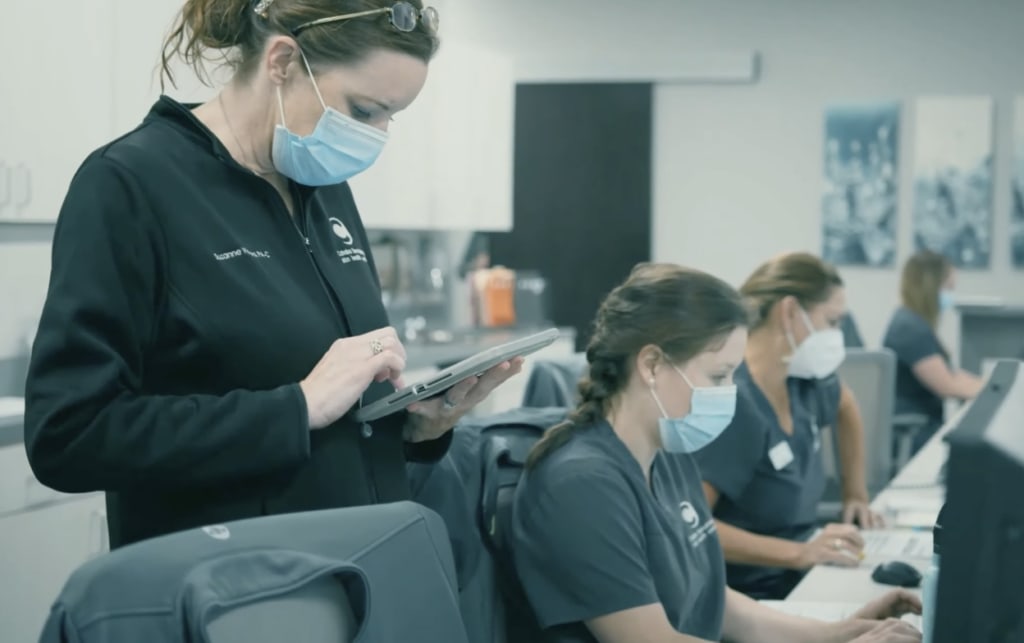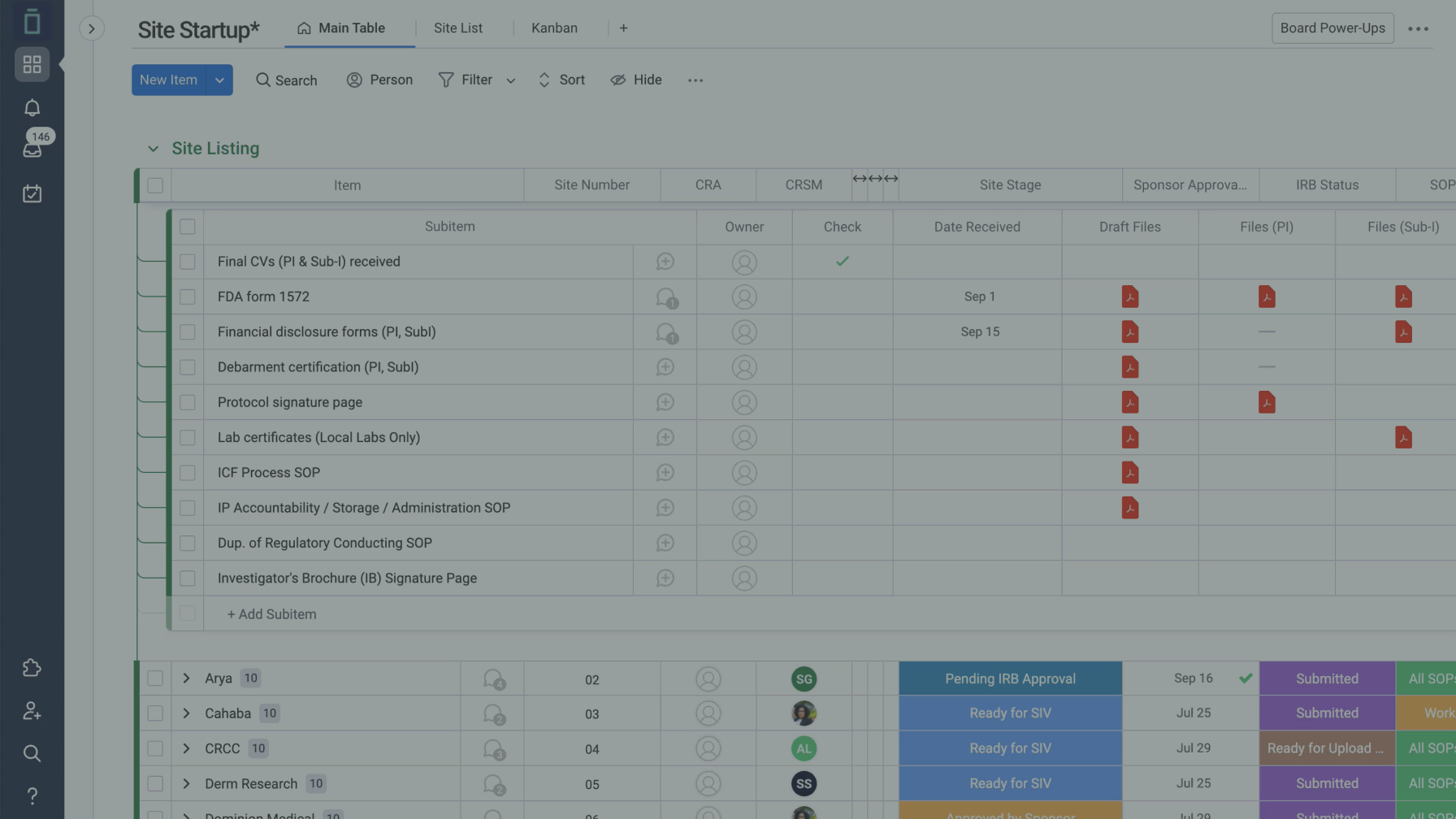
Vial – Neurology CRO
Vial – Neurology CRO market is expect to surpass US$ 7 Bn by 2021, growing at a compound annual growth rate of 6.7%. It is estimate to reach US$ 14.2 Bn by 2032. According to Persistence Market Research, the market for Neurology CRO is segment on the basis of services provided. The market for clinical services was worth US$ 2.2 Bn in 2021. Other services, such as data management, account for 18.6% of the market value. Over the past nine years, the market has grow at a compound annual growth rate of 5.5%.
The market for Neurology CRO is likely to increase over the next few years due to several factors. The increasing prevalence of chronic diseases and the need for early diagnosis of neurological conditions are two of the main factors driving this growth. Moreover, the organization has recently partner with two large pharmaceutical companies to support their efforts in the field of neuroscience.
To succeed in the Neurology CRO industry, it is essential to recruit highly skilled and experienced scientists. The market for Neurology CRO is influence by the number of mergers and acquisitions as well as private equity investments. Increasing number of pharmaceutical and biotechnology companies are outsourcing their drug development work to CROs. But the shortage of skilled professionals is also a significant challenge for the Neurology CRO industry.
Stanford Neuroscience and Neurosurgery Research Group
Several members of the Stanford Neuroscience and Neurosurgery Research group have specialize training, such as neuroimmunology. The group’s CRCs are trained to evaluate clinical trials in a wide range of neurological disorders. Dr. Safwan Jaradeh, a member of the group, has help develop a novel approach for treating brain disorders such as Parkinson’s disease and multiple sclerosis.
The group supports over 30 active laboratories. These labs study topics including brain injury, epilepsy, deep brain stimulation, and brain tumors. They also investigate the effects of stress on the nervous system. The themes that guide this group’s work have clear implications for clinical care.
The organization’s mission is to improve neurological care globally. It works with partner institutions in resource-limited areas to build capacity in neurology. The team emphasizes low-cost, sustainable impacts. To this end, the team has sent Global Health Scholars to several countries, including Ghana, Haiti, Malawi, and Zimbabwe. One of its projects has led to the establishment of a stroke center in Zimbabwe.
The group also supports innovative research aimed at improving diagnosis, treatment, and care for patients suffering from neurological disorders. It is also an active participant in clinical trials, which provide access to experimental therapies. The group’s clinical practice also serves as a platform for young doctors who are interested in neurological conditions. In addition to this, the team also provides support services for their patients. It also partners with the Wu Tsai Neurosciences Institute to develop new treatments and promote brain health.

Mayo Clinic
The Mayo Clinic Neurology Contract Research organization conducts basic, translational, and clinical neurology research to improve the diagnosis and treatment of neurological diseases. Its work focuses on treating conditions such as Alzheimer’s disease, Parkinson’s disease, and epilepsy. It also studies movement disorders and brain cancers.
The Mayo Clinic is an equal opportunity and affirmative action employer, and it values the diversity of its employees and candidates. It strongly encourages minority and women applicants, as well as people with disabilities. The organization also provides reasonable accommodations for job applicants with disabilities. In addition to excellent clinical judgment, Mayo Clinic employees must also be comfortable communicating with individuals of all levels and collaborating with teams at all levels.
In the field of neurology
The Mayo Clinic is one of the leading centers. All three of its campuses are accredit Comprehensive Stroke Centers by the National Cancer Institute (NCI). The Mayo Clinic is also part of the Alliance for Clinical Trials in Oncology, a group of scientists in the U.S. and Canada who collaborate on clinical trials.
Neurologists at Mayo Clinic are pursuing new applications of immunotherapy for patients with glioblastoma. They are studying more potent immunotherapies and using combination therapies to maximize effectiveness. They are also investigating the potential benefits of treating spina bifida in the womb. Their findings provide new insight into how this birth defect impacts the brain.
Neurology researchers are developing new drugs, improved imaging protocols, and new delivery methods. They also seek ways to improve patient safety and the quality of life in pediatric patients. They also study new treatment methods for brain tumors. For example, a team of neurosurgeons is testing the feasibility of forecasting seizures without direct measurements of brain activity. This study must become a valuable tool for patients with refractory epilepsy. Furthermore, Mayo Clinic neurosurgeons are testing new software and virtual reality for remote neurological evaluations.
Read also: Contract Research Organization List – Find a CRO Near You
Syneos Health
Syneos Health is a neurologic contract research organization that offers neurology-relate clinical research services. The company has a wide array of research expertise and services. With over 58,000 employees worldwide, it serves the bio-pharmaceutical, biomedical, and commercial outsourcing industries. Its business units include clinical research, clinical trial management, and commercial development.
The company’s recent acquisition of StudyKIK enhances the capabilities of its existing clinical research portfolio. It helps Syneos Health improve the patient journey, optimize data science and behavioral insights, and accelerate the commercialization of new drugs and treatments. The acquisition also complements Syneos’ recent investments. Its other recent acquisitions include Illingworth Research Group and the formation of technology partnerships with Science37 and Medable.
Syneos’s name is derive from the Greek word “neo,” which means “new.”
The company’s name is intend to convey its core value of aligning commercial and clinical capabilities. The organization is dedicate to providing integrated clinical and commercial solutions that accelerate bio-pharmaceutical development and help customers meet their business objectives. Its logo, with its vibrant orange color palette, conveys the seamless integration of multidisciplinary services.
The market for neurology CROs is growing because of the growing prevalence of neurological disorders and an increased focus on research to improve diagnosis and cure. The Parkinson’s Foundation, for example, estimates that 1.2 million people in North America will have Parkinson’s disease by 2030. This surge in the number of neurology-related clinical trials will positively impact the market.
Syneos Health offers a range of clinical trial services to clients. Its centralized solutions incorporate behavioral insights, agile technologies, and operational excellence. Its premier technology platform, Science 37, makes clinical trials virtual, involving patient communities, telemedicine investigators, mobile nurses, and connected devices. With this approach, the company is able to deliver clinical trials faster than other CROs and to engage the medical community in a personalized way.
Stanford University School of Medicine
The Neurology Contract Research organization at Stanford University School of Medicine is composed of over 20 neurologists who conduct clinical trials on behalf of pharmaceutical and biotechnology companies. The group also includes clinical research coordinators. Currently, the Neurology Contract Research organization is overseen by Maria Rossinger, M.S., who joined Stanford in 2006. She oversees the group’s finances, compliance, and resources, and works closely with faculty PIs to ensure that clinical trials are implemented safely and efficiently.
The Neurology Department has been a center of excellence for over four decades and is home to over 140 faculty members. Many of them have primary academic appointments at Stanford teaching hospitals and health care systems. The school is also home to Stanford Health Care, a new, state-of-the-art hospital with more than 600 beds. The hospital is one of the largest inpatient facilities in the state of California, and is ranked among the top 10 for Neurology and Neurosurgery by US News & World Report.
Dr. David Katz, the founding director of the Stanford University School of Medicine’s Neuromuscular Medicine division, provides comprehensive patient care and extensive clinical research opportunities. His research organization maintains comprehensive patient records and a repository of autopsy and biopsy specimens. This allows researchers to conduct clinical trials in a highly specialized field of medicine.
Dr. Teng, an adjunct clinical associate professor of neurology at Stanford University School of Medicine, is involved in clinical trials for pharmaceutical companies. He is also engaged in basic research on neurodegenerative disorders. After graduating from Columbia University, Dr. Teng completed her MD and Ph.D. at Johns Hopkins University. During her residency and postdoctoral training, she focused on neurodegenerative disorders. During her residency, Dr. Andreasson also began research studies focusing on brain inflammation. This research team seeks to identify specific pathways that trigger brain inflammation.

Psychiatry CRO
If you’re in the field of psychiatry, you should consider working with a Psychiatry Contract Research organization (CRO). The organization can help you with all stages of clinical trials, from the pre-clinical stage to the final analysis. They’ll be able to offer expertise and capabilities to overcome the unique challenges of clinical development. For example, Vial CRO, a global CRO, has developed an innovative approach to clinical trials, and they’ve handled some of the most complex trials in the industry.
Vial CRO
Vial CRO is a contract research organization whose purpose is to improve the lives of patients suffering from mental illness. It is committed to providing the highest standards of professionalism for its research projects. Its work is also instrumental in forming the policies and practices of the public and private sectors, mental health care providers, and agencies of all levels of government. In addition to research projects, Vial CRO also produces evidence-based quality indicators of practice and workforce patterns.
Vial CRO is a complex field and treads a fine line between subjectivity and hard science. To address the unique challenges of this field, Worldwide develops studies that balance the needs of stakeholders. It works closely with key clinical leaders and engages a global network of clinicians. As a result, the organization has a proven track record of ensuring high quality results for its clients.